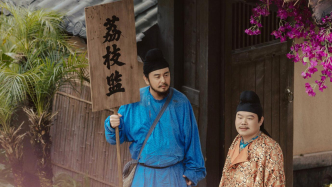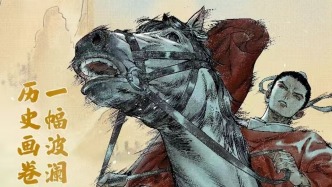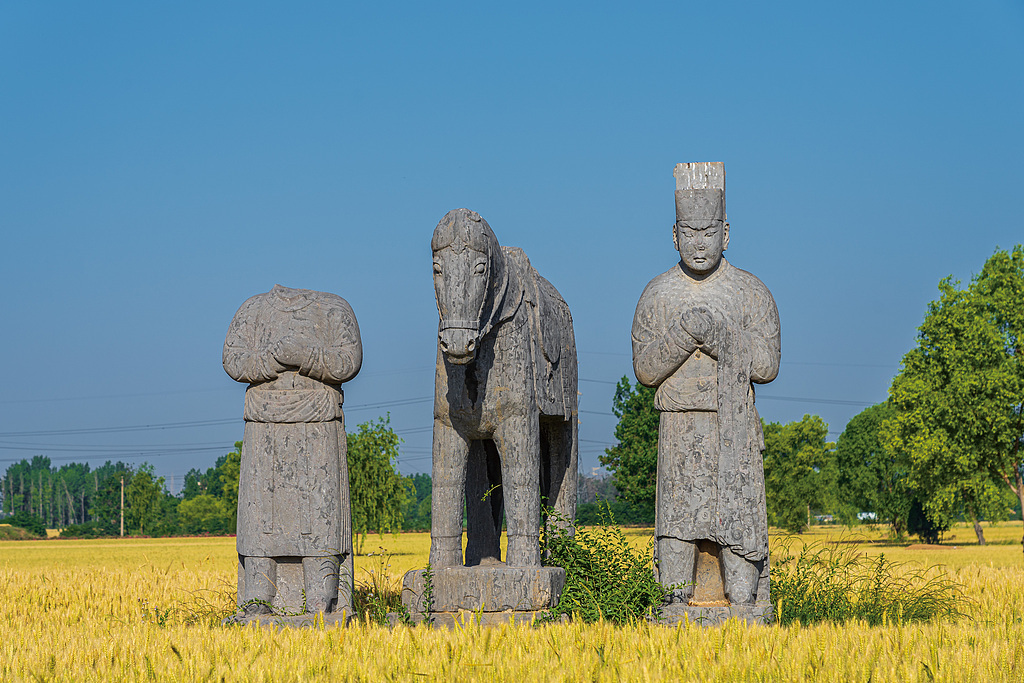
Editor's note: The online literature world is full of mud and sand, so we will be the first to take the risk.
Ma Boyong expanded Du Mu's famous line "A horse gallops through the red dust, and the concubine smiles; no one knows it is the lychees coming" into a novel titled "Lychees of Chang'an", which tells the story of a minor official, Li Shande, who wants to deliver fresh Lingnan lychees to Chang'an before the concubine's birthday.
As the book vividly depicts the daily life of grassroots workers in the Tang Dynasty, it has won many fans since its publication. In 2025, the TV series with the same name were broadcast one after another, which drove many people to read the original book.
After reading "Lychees in Chang'an", if readers are interested in reading similar online articles, you may wish to read this article. The following books are also set in the background of the times before and after major events in ancient history, telling the stories of small people trying to survive.
"Qin Li" Author: July New Edition
If "Lychees in Chang'an" is an expansion of the famous line by the Tang Dynasty poet Du Mu that has been passed down through the ages, then "Qin Li" is a literary interpretation of the "Shuihudi Qin Bamboo Slips".
First, let's introduce the extremely important bamboo slips of the Qin Dynasty in the history of Chinese archaeology - the Shuihudi Qin Bamboo Slips. This batch of bamboo slips got its name because it was unearthed from the Shuihudi Qin Tomb in Yunmeng County, Hubei Province in 1975. The discovery of this batch of bamboo slips provides first-hand material for studying the politics, law, economy and culture of the Qin Dynasty, greatly filling the gap in the handed-down documents.
The author of "Qin Li" July Xinfan quoted extensively from unearthed documents including the Shuihudi Qin Bamboo Slips. It is set in the Qin Dynasty (especially the period of Qin Shihuang) and tells the story of the protagonist Heifu, who started as a grassroots official (Tingchang) and gradually became involved in the torrent of history.
The protagonist Hei Fu does not have any golden fingers for time travel. His rise depends on his mastery of Qin law, his insight into the ways of the world, and his grasp of the opportunities of the times. Hei Fu's growth is intertwined with major events such as Qin's unification of the six kingdoms, the southern conquest of Baiyue, and the northern attack on the Xiongnu.
The book's description of the grassroots society of the Qin Dynasty is particularly brilliant, such as the harshness of official administration, the conflicts among the survivors of the six kingdoms, and the plight of ordinary people, showing the cruelty and efficiency behind the "rule of law". As a modern soul, Hei Fu's collision with the Qin Dynasty system (such as reflection on "harsh laws and severe punishments") adds depth to his thoughts, but the author does not forcibly subvert historical logic with modern values.
Like "Lychees in Chang'an", Hei Fu also faced a "lychee-style" dilemma: how to complete an impossible task (such as escorting prisoners within a deadline) while avoiding being blamed by his superiors.
"Qin Li" has been completed on Qidian Chinese website. The book has been selected for the National Library collection in 2020 and the first batch of nine books in the 2020 National Press and Publication Administration's "Excellent Realism and Historical Themes Online Literature Publishing Project".
Unfortunately, the author of the novel, July Xinfan (formerly known as Li Yunfan), passed away in 2023, leaving behind the unfinished "Supporting the Han Dynasty".
"Man Tang Hua Cai" Author: Weird Cousin
In the fifth year of the Tianbao Period of the Tang Dynasty, Emperor Xuanzong of Tang was enjoying his life in comfort, Li Linfu was still in power, Crown Prince Li Heng was still keeping a low profile, and An Lushan, who would overthrow the Tang Dynasty in the future, was still an unknown governor of the Hu people. The protagonist of this book, Xue Bai, had just traveled to the Tang Dynasty when he was involved in a major treason case. In order to save his own son, Du Jiawu, he used his wisdom, courage and insight to pull the entire Du family back from the brink of death.
The author's eccentric cousin did a lot of research and carefully placed famous or unknown Tang poems in every corner of the novel, decorating the infinite splendor of the Tianbao era. Reading this book will remind you of the animated film "30,000 Miles from Chang'an". Of course, the protagonist of the book also "plagiarized" some Tang poems, Song lyrics, and Yuan opera, but mainly to use poetry to interpret people's hearts.
Similar to "Lychees in Chang'an", this book also shows the social contradictions in the Tang Dynasty before the "Anshi Rebellion" from the perspective of small people: land annexation, separatist rule of military governors, etc.
"Man Tang Hua Cai" has also been completed on Qidian Chinese website. Although readers who like it compare it to "The Ming Dynasty 1566", the author thinks that this book is more like "The Cases of Judge Dee in the Tang Dynasty" + "The Judge Advocate of the Song Dynasty".
The Richest Man in the Qing Dynasty Author: A Pu
The book is set in the late Qing Dynasty, during the heyday of Guangzhou Thirteen Hongs. The protagonist Wu Chengjian (a time traveler) is the youngest son of the Guangzhou merchant "Tongwenhang". Due to a family crisis, he is forced to get involved in the ups and downs of the business world. As a result, Wu Chengjian grows from a playboy to a business tycoon, dealing with government officials, foreign merchants, and gangs, trying to build a business empire in the "closed-door" Qing Dynasty.
The protagonist breaks through through modern business means such as "futures hedging" and "cross-border arbitrage", but is restricted by the laws and officialdom rules of the Qing Dynasty, and every step is treading on thin ice. Even more ironic is that the protagonist tries to introduce Western technology (such as steam engines), but is suppressed by the government as "strange skills and tricks". If "Lychees in Chang'an" shows the fragility of the prosperous Tang Dynasty before the An-Shi Rebellion, then "The Richest Man in the Qing Dynasty" directly reveals that after Europe entered the industrial age, the Kangxi and Qianlong prosperity built up by the small peasant society itself is not worth mentioning.
The protagonist of this book, Wu Chengjian, wanders between the officialdom, businessmen and gangs, facing extortion from the imperial court, price pressure from foreign merchants and threats from gangs. It can be called the "Qing Dynasty version of The Godfather."
The Richest Man in the Qing Dynasty has been completed on Baidu Novels. It should be pointed out here that the book is forcibly linked to the Opium War in the later part, and the ending is rather hasty.
If you are interested in the survival rules of "red-top businessmen" or want to understand the economic reefs of the Qing Dynasty before the Opium War, this book is worth reading.
Easter Eggs
If you are interested in "Lychees in Chang'an" itself and want to know what kind of life Li Shande finally lived in Lingnan, you can try to open Zhihu and NetEase LOFTER, where there are some very interesting fan fictions. However, fan fictions vary in quality, so please make your own judgment. Since Zheng Ping'an, played by Yue Yunpeng, is a new character in the TV series "Lychees in Chang'an", there are not many intersections between Li Shande and Zheng Ping'an in the fan fictions.


